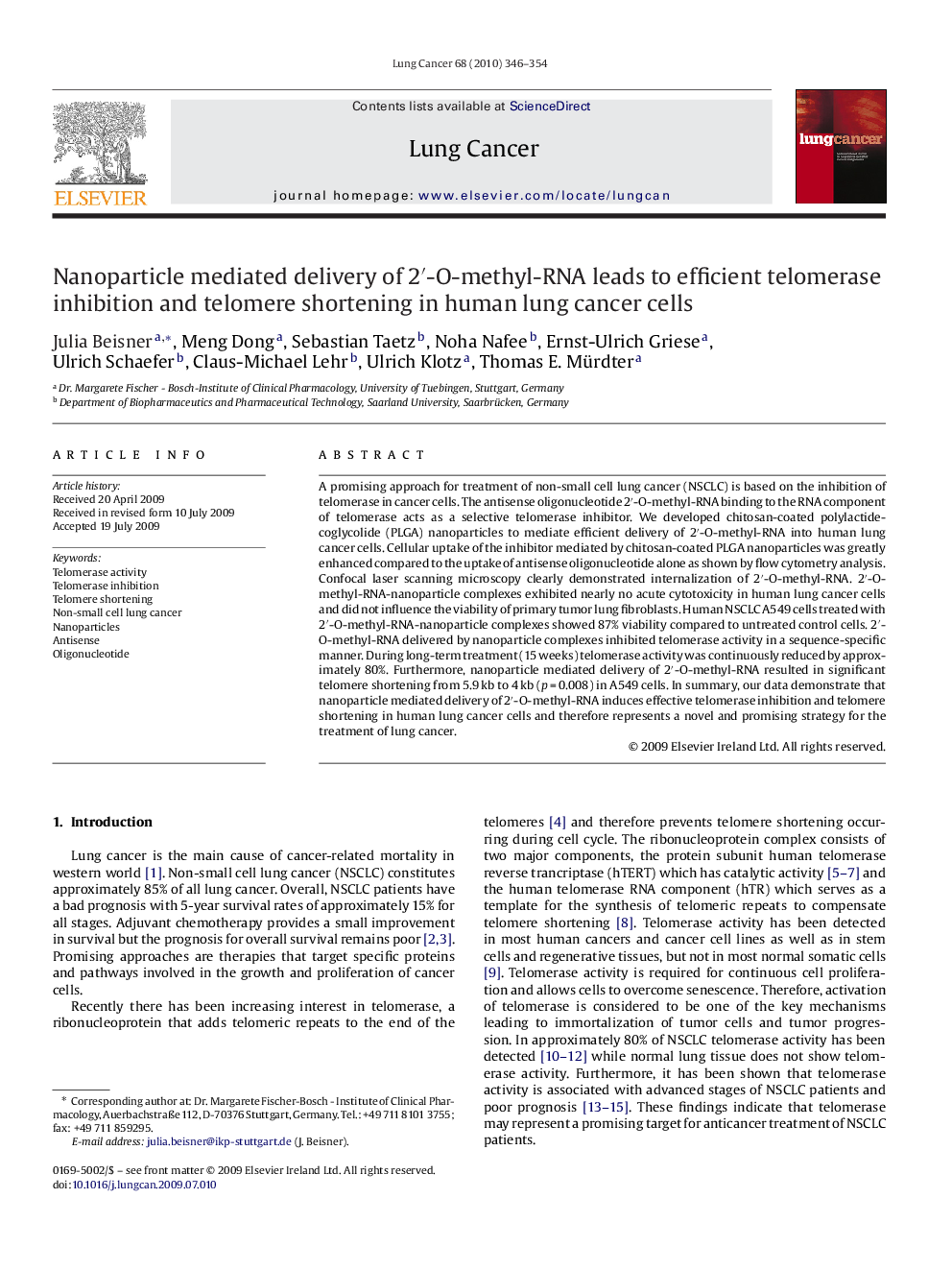| Article ID | Journal | Published Year | Pages | File Type |
|---|---|---|---|---|
| 2142534 | Lung Cancer | 2010 | 9 Pages |
A promising approach for treatment of non-small cell lung cancer (NSCLC) is based on the inhibition of telomerase in cancer cells. The antisense oligonucleotide 2′-O-methyl-RNA binding to the RNA component of telomerase acts as a selective telomerase inhibitor. We developed chitosan-coated polylactide-coglycolide (PLGA) nanoparticles to mediate efficient delivery of 2′-O-methyl-RNA into human lung cancer cells. Cellular uptake of the inhibitor mediated by chitosan-coated PLGA nanoparticles was greatly enhanced compared to the uptake of antisense oligonucleotide alone as shown by flow cytometry analysis. Confocal laser scanning microscopy clearly demonstrated internalization of 2′-O-methyl-RNA. 2′-O-methyl-RNA-nanoparticle complexes exhibited nearly no acute cytotoxicity in human lung cancer cells and did not influence the viability of primary tumor lung fibroblasts. Human NSCLC A549 cells treated with 2′-O-methyl-RNA-nanoparticle complexes showed 87% viability compared to untreated control cells. 2′-O-methyl-RNA delivered by nanoparticle complexes inhibited telomerase activity in a sequence-specific manner. During long-term treatment (15 weeks) telomerase activity was continuously reduced by approximately 80%. Furthermore, nanoparticle mediated delivery of 2′-O-methyl-RNA resulted in significant telomere shortening from 5.9 kb to 4 kb (p = 0.008) in A549 cells. In summary, our data demonstrate that nanoparticle mediated delivery of 2′-O-methyl-RNA induces effective telomerase inhibition and telomere shortening in human lung cancer cells and therefore represents a novel and promising strategy for the treatment of lung cancer.
